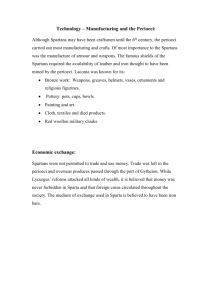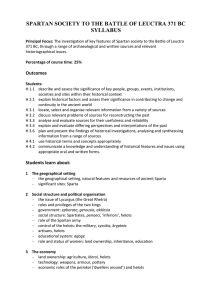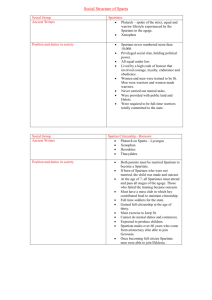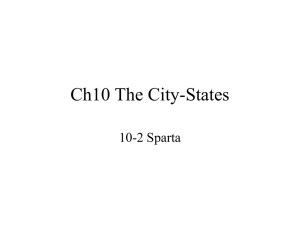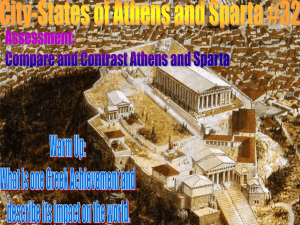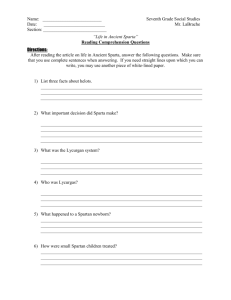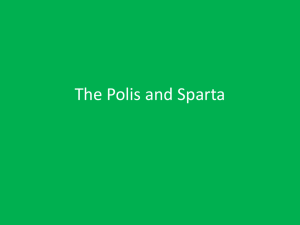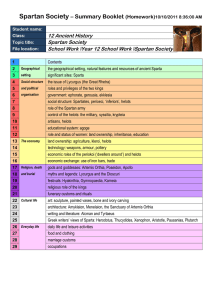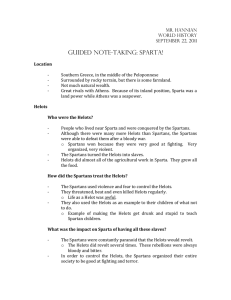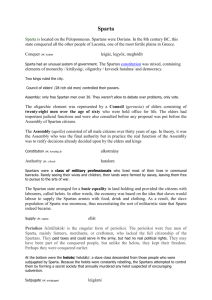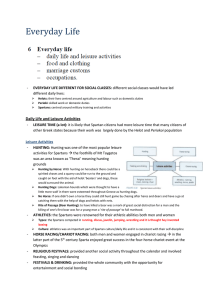Everyday Life - Haiku Learning
advertisement
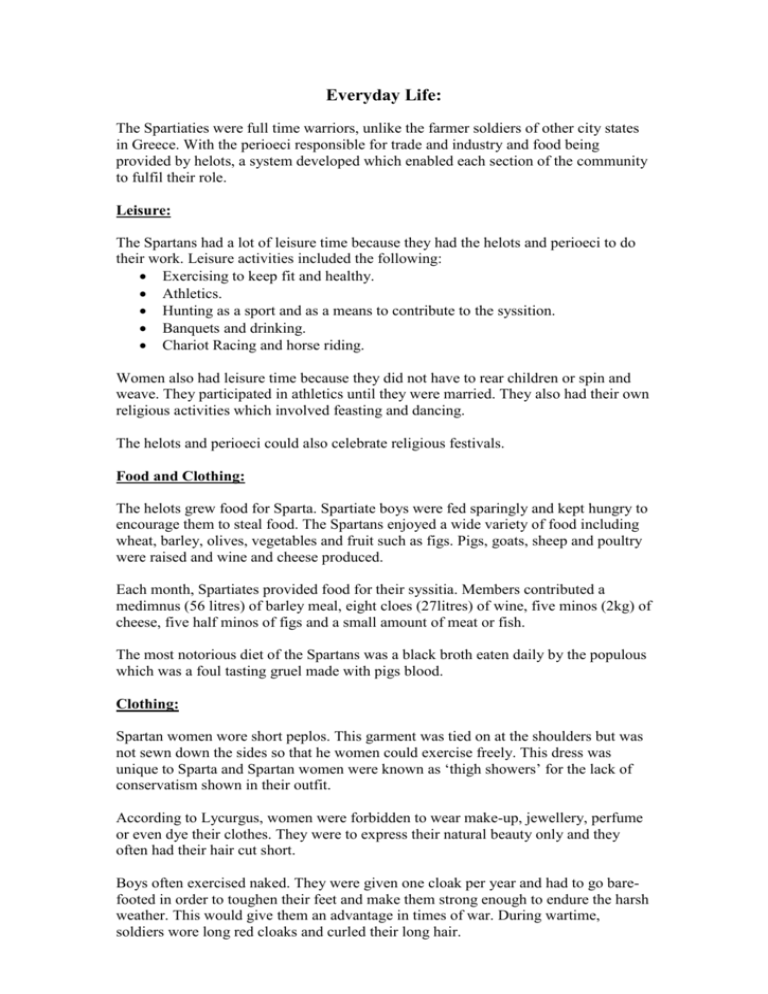
Everyday Life: The Spartiaties were full time warriors, unlike the farmer soldiers of other city states in Greece. With the perioeci responsible for trade and industry and food being provided by helots, a system developed which enabled each section of the community to fulfil their role. Leisure: The Spartans had a lot of leisure time because they had the helots and perioeci to do their work. Leisure activities included the following: Exercising to keep fit and healthy. Athletics. Hunting as a sport and as a means to contribute to the syssition. Banquets and drinking. Chariot Racing and horse riding. Women also had leisure time because they did not have to rear children or spin and weave. They participated in athletics until they were married. They also had their own religious activities which involved feasting and dancing. The helots and perioeci could also celebrate religious festivals. Food and Clothing: The helots grew food for Sparta. Spartiate boys were fed sparingly and kept hungry to encourage them to steal food. The Spartans enjoyed a wide variety of food including wheat, barley, olives, vegetables and fruit such as figs. Pigs, goats, sheep and poultry were raised and wine and cheese produced. Each month, Spartiates provided food for their syssitia. Members contributed a medimnus (56 litres) of barley meal, eight cloes (27litres) of wine, five minos (2kg) of cheese, five half minos of figs and a small amount of meat or fish. The most notorious diet of the Spartans was a black broth eaten daily by the populous which was a foul tasting gruel made with pigs blood. Clothing: Spartan women wore short peplos. This garment was tied on at the shoulders but was not sewn down the sides so that he women could exercise freely. This dress was unique to Sparta and Spartan women were known as ‘thigh showers’ for the lack of conservatism shown in their outfit. According to Lycurgus, women were forbidden to wear make-up, jewellery, perfume or even dye their clothes. They were to express their natural beauty only and they often had their hair cut short. Boys often exercised naked. They were given one cloak per year and had to go barefooted in order to toughen their feet and make them strong enough to endure the harsh weather. This would give them an advantage in times of war. During wartime, soldiers wore long red cloaks and curled their long hair. Occupation: Spartiates: Full time soldiers Government officials. Priests. Helots: Agricultural workers. Domestic servants. Nurses. Perioeci: Craftsmen. Traders. Industry workers. Fisherman.
